Session 5, Week 2
On the night my daughter came to me 5 years ago and asked me to start an Acton Academy, I asked her what we should call it? Her immediate reply was “CHOICE, because choice has two meanings and it will mean both of those.” Choice as in: “an act of selecting or making a decision when faced with two or more possibilities” and choice as in: “of very good quality” (Oxford languages). 5 years later, choice has yet another meaning. Choice as in: representative of and in accordance with our CHOICE school culture. It is in relation to all three of these meanings that we explore CHOICE relationships this week in our studios.
The Spark Studio started off Monday morning with a Socratic launch: ‘Crayola needs our help. They are changing out the 24 packs of crayons to packs of 15 crayons. Which colors do you keep and which will not be included in the pack of 15?’ The discussions were fantastic! Some heroes chose not to include their favorite colors. Some said the pack didn’t need so many variations of the same color. Some decided colors like black and brown and gray should be left out. Most heroes felt like they needed to write with the crayons in order to make a decision. At the end of the launch, the studio as a whole only agreed that blue, green, and orange should be included. The verdict on the other 12 colors is still out. Our CHOICE relationships grow when we solve problems together, think creatively together, and peacefully share opinions.
Books build our CHOICE relationships. As we experience the same book, we make connections. I’ve seen learners provide solutions to conflicts all because of a book we discussed in class. When we read books we go on adventures together. We problem solve together. We learn alongside one another. Often we think of mentors as human beings. Can a book be considered a mentor?
It is magical to watch emerging readers sound out words and it’s heartwarming to see when heroes have the confidence to step into the ally role as they help others with spelling.
Learners get so excited with their discoveries and want to share that new knowledge with others. “I love this work!” “Hey! I live in the solar system!” One learner shared her insight with others while she built a guitar with cardboard and hot glue. Another learner made discoveries while playing with soap and water. “Look! The water can go through the bubble without popping it!” Freedom to discover and the freedom to share with others builds CHOICE relationships.
We love it when parents share their many talents with us. “CHOICE” relationships are formed with adults: guides and other parents. This parent came and helped us understand the importance of hand washing. One learner held out his hand and the parent colored chalk on it. The learner then put his hand in a bag of cereal. The visual helped the whole class to see that germs are all around us and it is important to wash our hands before we eat food. It was really cool to see the germs on our hands under the special light. It took a thorough hand washing to effectively get all the germs off.
Some call it Spirit Day. We call it Green CHOICE Day. We’ve got spirit! Yes we do! We’ve got spirit! How ‘bout you?! We form “CHOICE” relationships when we are united in a common cause. When heroes get to choose their cause, there is unity and passion – even if that cause is to wear green!
One quest challenge this week was to do something that bridges the gap between us and our goals. One hero’s goal was to make more friends. When he was asked if he had done anything to make new friends or to get closer friends, the hero working with him leaned into his view with his eyes wide, implying they had been building their friendship. They noticed the play on words and jokingly touched their foreheads together and announced that they had become “closer” friends. I love that heroes have the freedom to choose “make more friends” as their goal!
At recess some heroes have been practicing tricks on the scooters. One hero brought up things they could do if they had a ramp. They were unsure if it was ok at school but we decided that if they wore helmets it was within the guardrails. Creating the ramp started with just a few heroes, but soon attracted more heroes than we have helmets. Some heroes were happy to share their helmets. One hero that was a key player in creating the ramp became frustrated and decided to step away. Others went to cheer her up. She appreciated their gesture and told them nobody did anything wrong. Even though the situation was frustrating for her, she said she wasn’t mad and encouraged them to continue playing. Learning and practicing conflict resolution is absolutely part of CHOICE relationships.
As one hero prepared to ride down the ramp, he looked out and asked, “Is this safe?” We decided that if he fell, he wouldn’t need to go to the hospital, but it was likely a band-aid would do. With some risk analysis he decided to courageously give it a shot. Every time a hero went down the ramp, the spectators watched eagerly as if it were Neal Armstrong stretching the boundaries of humanity. There were a couple of times someone tripped and caught themselves with empathetic hearts watching, and there was excitement as they got back up. At the end of the day, we shared lowlights and highlights. There was a variety of highlights shared, but several heroes felt the lowest point in the day was seeing a friend fall on the ramp. Heroes are practicing and recognizing empathy – a crucial element to relationships.
Fire Studio heroes are months into developing their studio culture and this week there were many great examples of the CHOICE relationships that have formed during that time.
Town Hall can be a time of high emotions as heroes disagree, but this week two heroes showed such respect and patience as they disagreed on a point of discussion. I observed verbal apologies and forgiveness statements where I sometimes observed blaming or victim responses in the past. As heroes are given the opportunity to practice, CHOICE relationships progress towards more mature and more kind.
Problem solving together at STEM explore tables and tribe building challenges give heroes the chance to practice the skills needed for problem solving during Town Hall.
Dodgeball is a favorite PE choice for heroes and it usually is a time of fun, exercise, and tribe building, but sometimes it can bring some tears. One hero took an accidental shot to the head, but when the hero ran inside in tears, he was immediately followed by three other heroes ready to help him feel better in ways they knew helped him personally. Showing empathy is part of the CHOICE relationships they have formed this year.
One hero was elated to earn 2 badges this week, which she acknowledged as a bit of a group effort, as she was supported by her friends and running partners–true CHOICE relationships–along the road to those badges.
In a moment of high emotions, one hero hurt the feelings of another hero, who retreated to the bathroom in tears. He was not alone for long, though. Two especially compassionate heroes were soon there to listen, support, and cheer up the hero. They helped him use the Moolah system to hold accountability and I even overheard some sage advice, “It’s okay to cry. When you are really mad, sometimes it’s like a fart–you just need to let it all out to feel better!” CHOICE relationships help heroes not feel alone, even when school brings out difficult emotions.
Laughing together while completing challenges builds relationships strong enough to cry together.
It was all about Tech & Tools in the Fire Studio quest this week. Heroes got experience formatting documents, creating slideshows, and designing marketing posters. This quest requires heroes to complete challenges on their own, but there are also advantages in the “game” when all of the heroes in a squad reach a goal together. One hero, well ahead of the expected points accumulation for the week, was ready to rest easy, but was then reminded by a fellow squad member of someone who needed help to stay on task. As the hero quickly shifted into a mentor role to help their fellow squad member, they were learning and experiencing the joy that comes from serving others; serving others is part of CHOICE relationships. Heroes were also introduced to some collaborative Google tools, such as the comments function on a document that someone shares with you. Already helpful heroes were excited to have another way to efficiently offer feedback and advice on writing and formatting.
In the DELTA Studio, heroes are at an age where they biologically become more and more aware of others and their relationships with others, while simultaneously becoming more self aware and drawn inward. It is an honor to observe how your DS heroes are navigating this change.
Each week the DS heroes choose to focus on one of their 5 commitments and then give themselves warm and cool feedback. One of these commitments is to “be part of and contribute to an inclusive tribe.” Here is a sampling of this week’s feedback from those who focused on that commitment: “I included people, except on Wednesday I didn’t include ________.” “I helped with mentoring. I could have looked for more ways to mentor.” “I hung out with a couple more people. I could have invited them to do something.” “I included a lot of people in games. I could have found new people to invite.” “I invited people to hang out with me. I could have asked even more.” I am so impressed with these heroes who are choosing to focus outward and look to include others. That is only one example of how the DELTA heroes’ learning and practicing CHOICE relationships. Here are other examples that happened this week (and every week):
DS heroes choose to spend their time mentoring others:
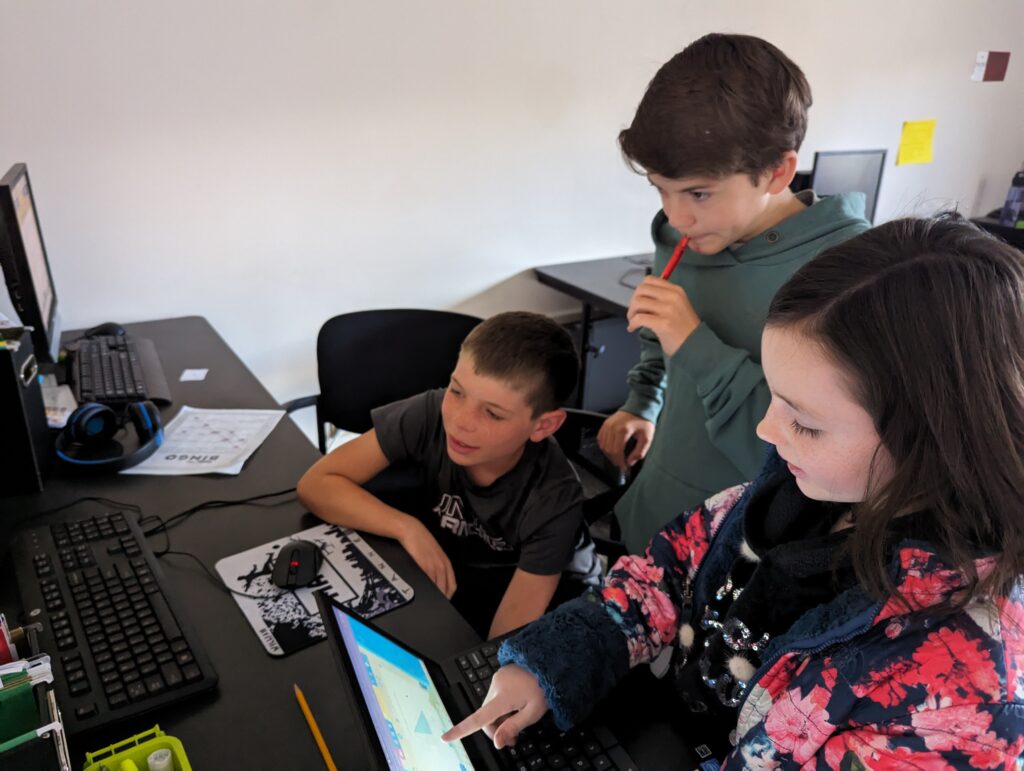
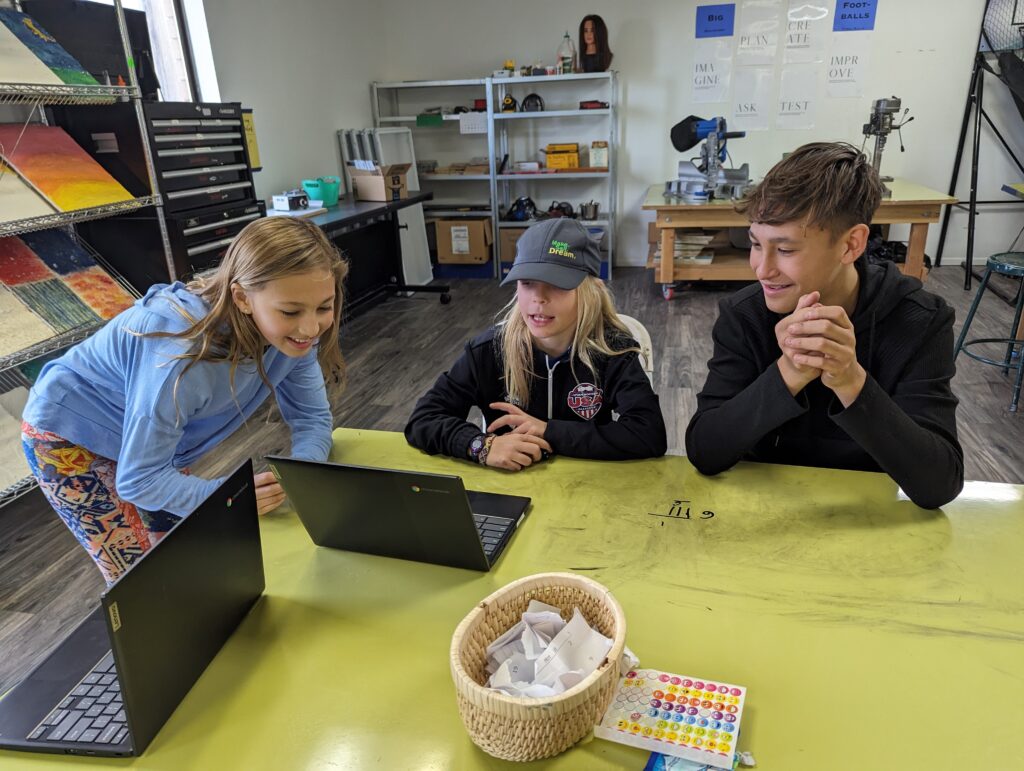
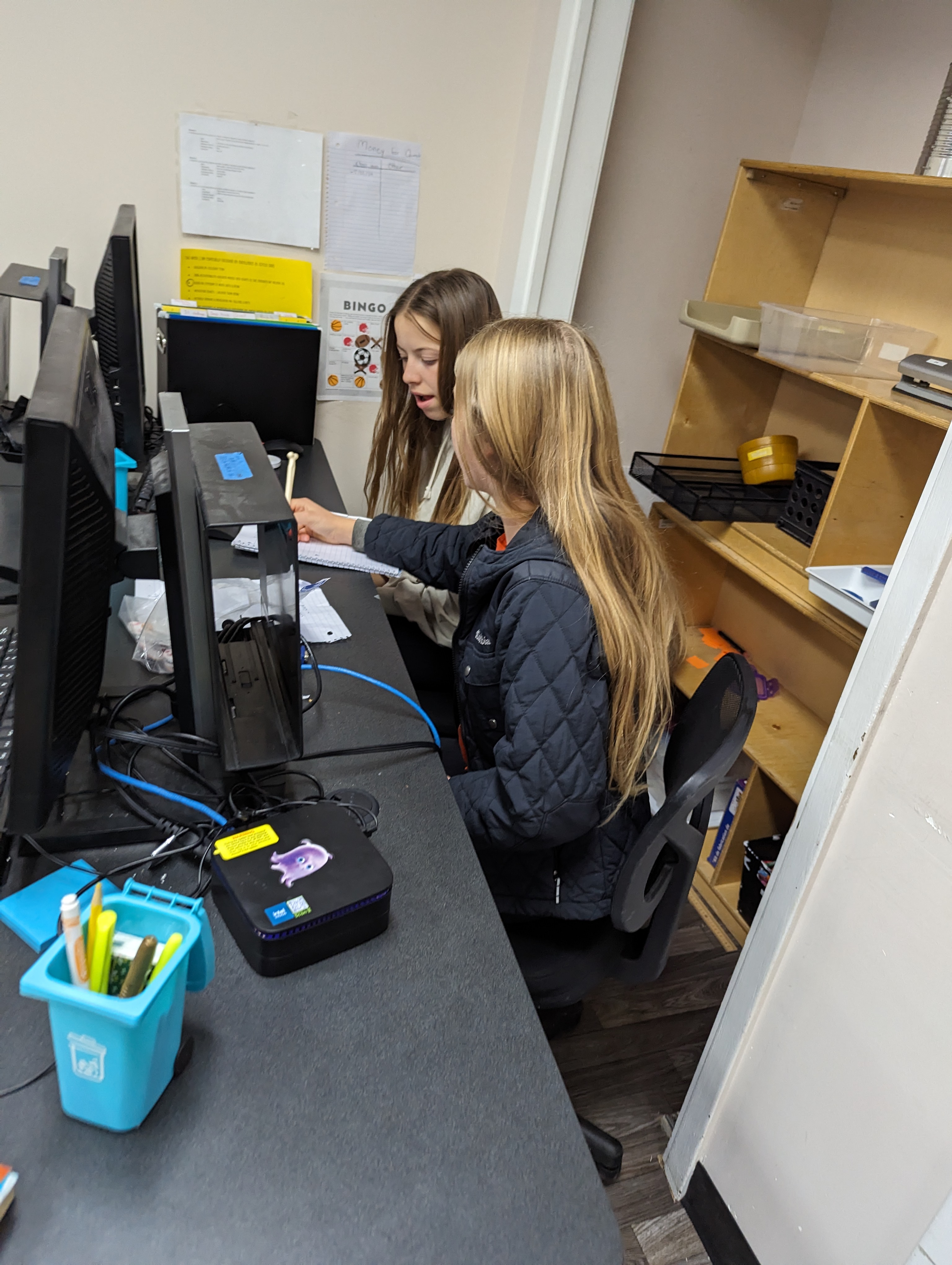
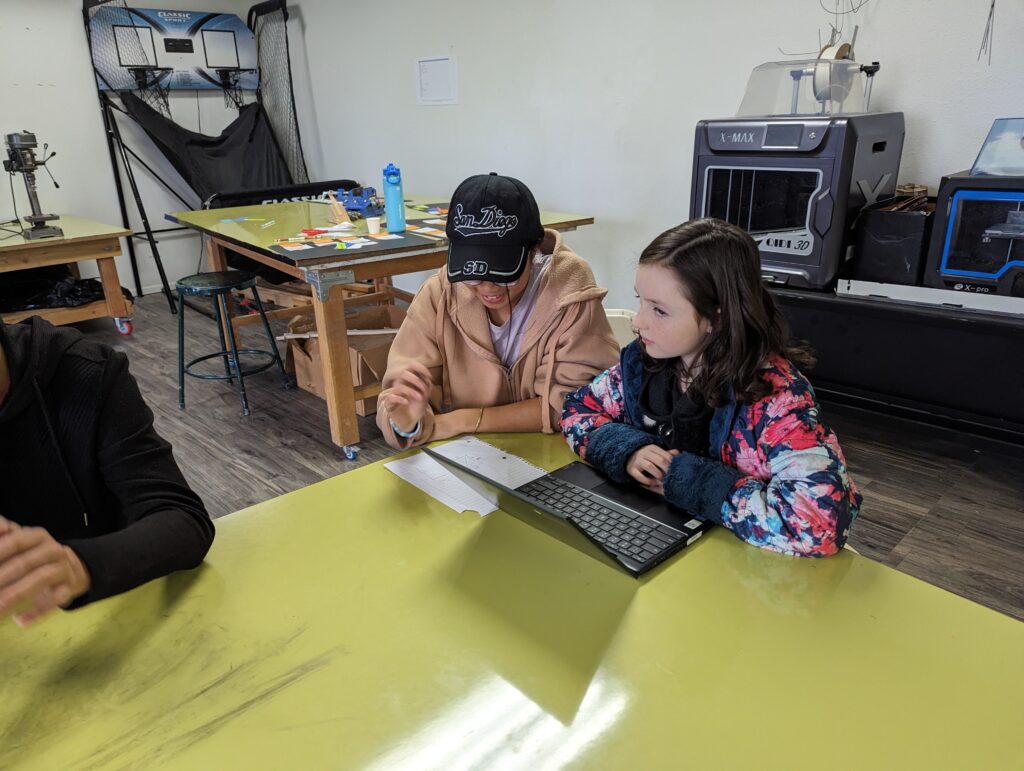
Exploratory works provide a beautiful opportunity for heroes to practice CHOICE relationships working together on something they are passionate about.
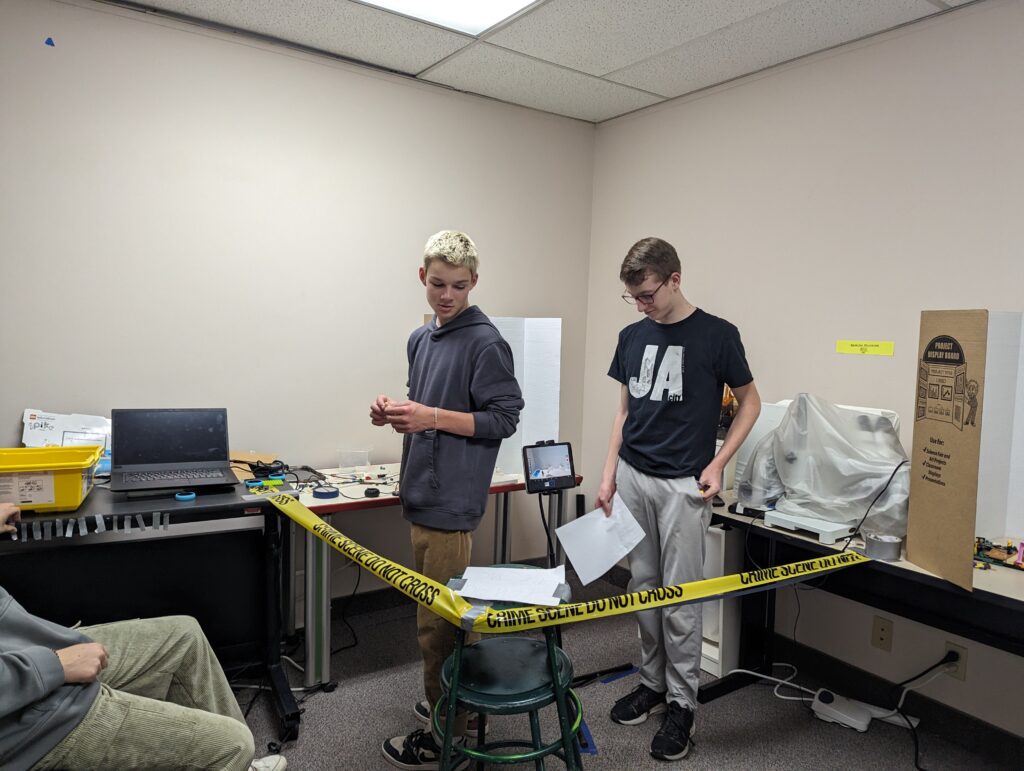
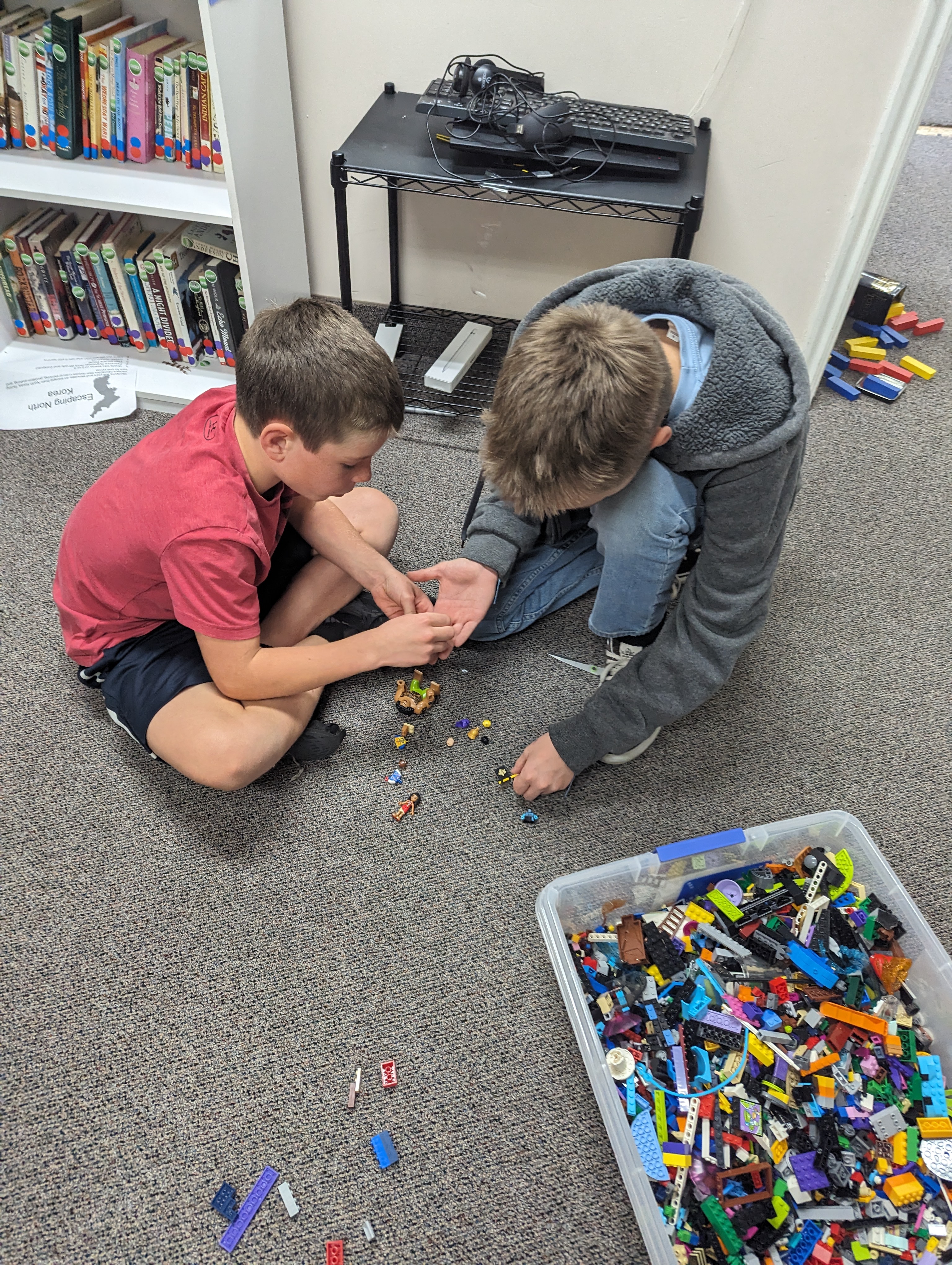
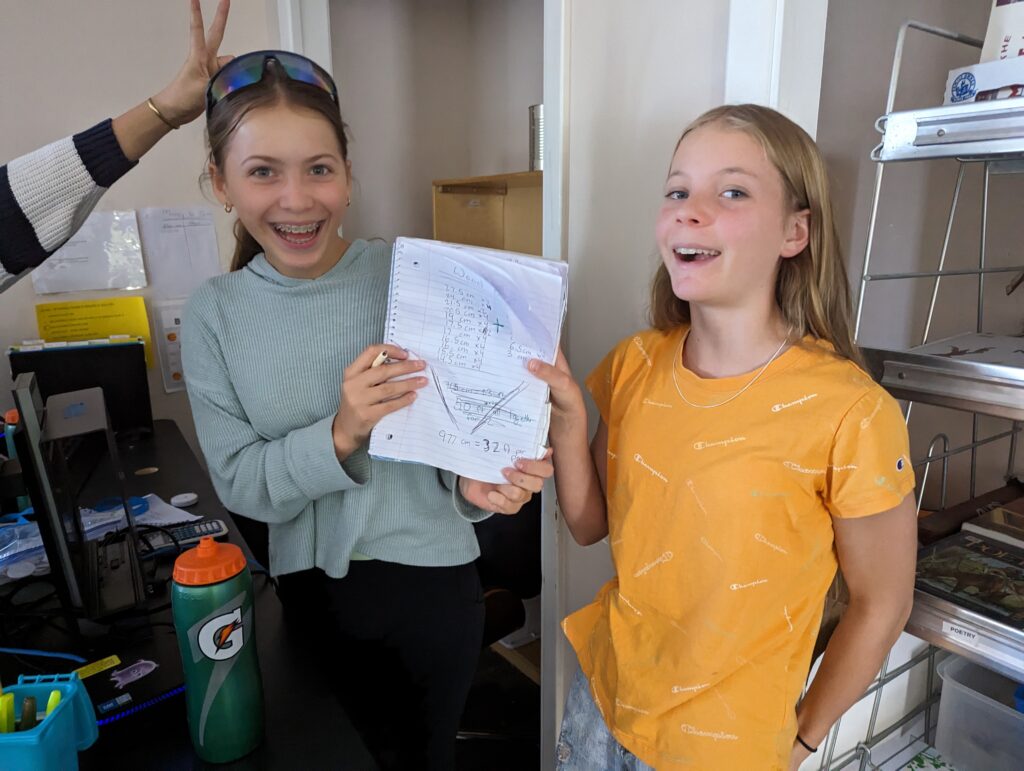
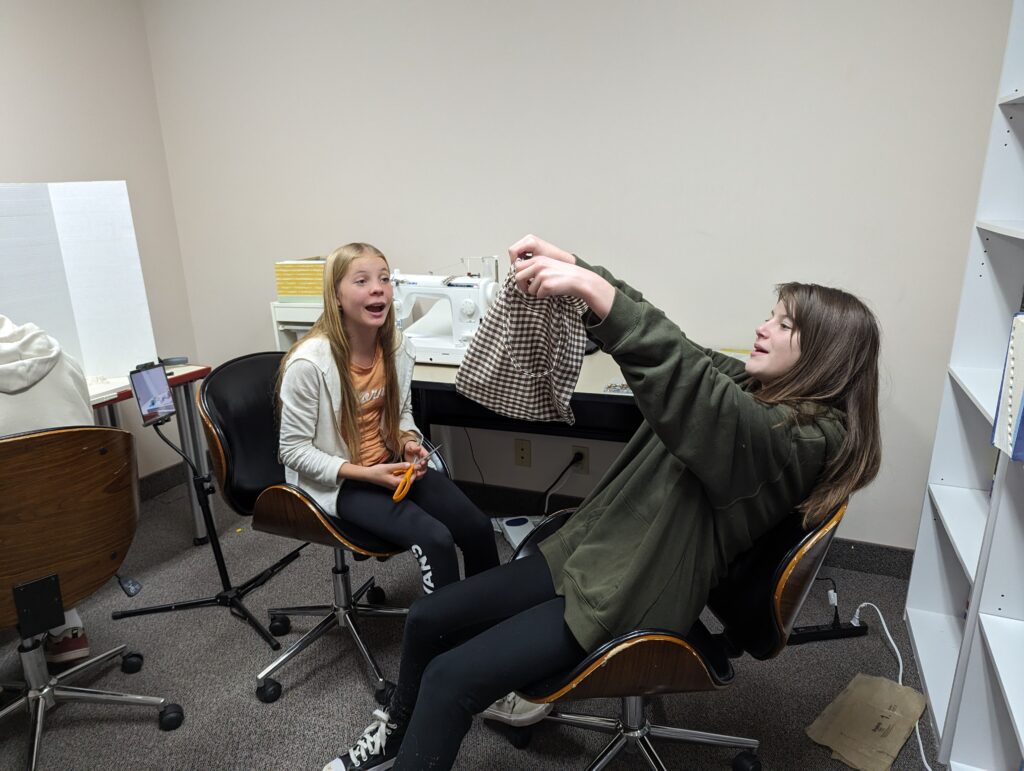
The technology policy at CHOICE includes that phones are away until the school day is over. Without their phones, look at the fun things heroes choose to do with each other before school, after school and during lunch. This is practicing and enjoying CHOICE relationships.
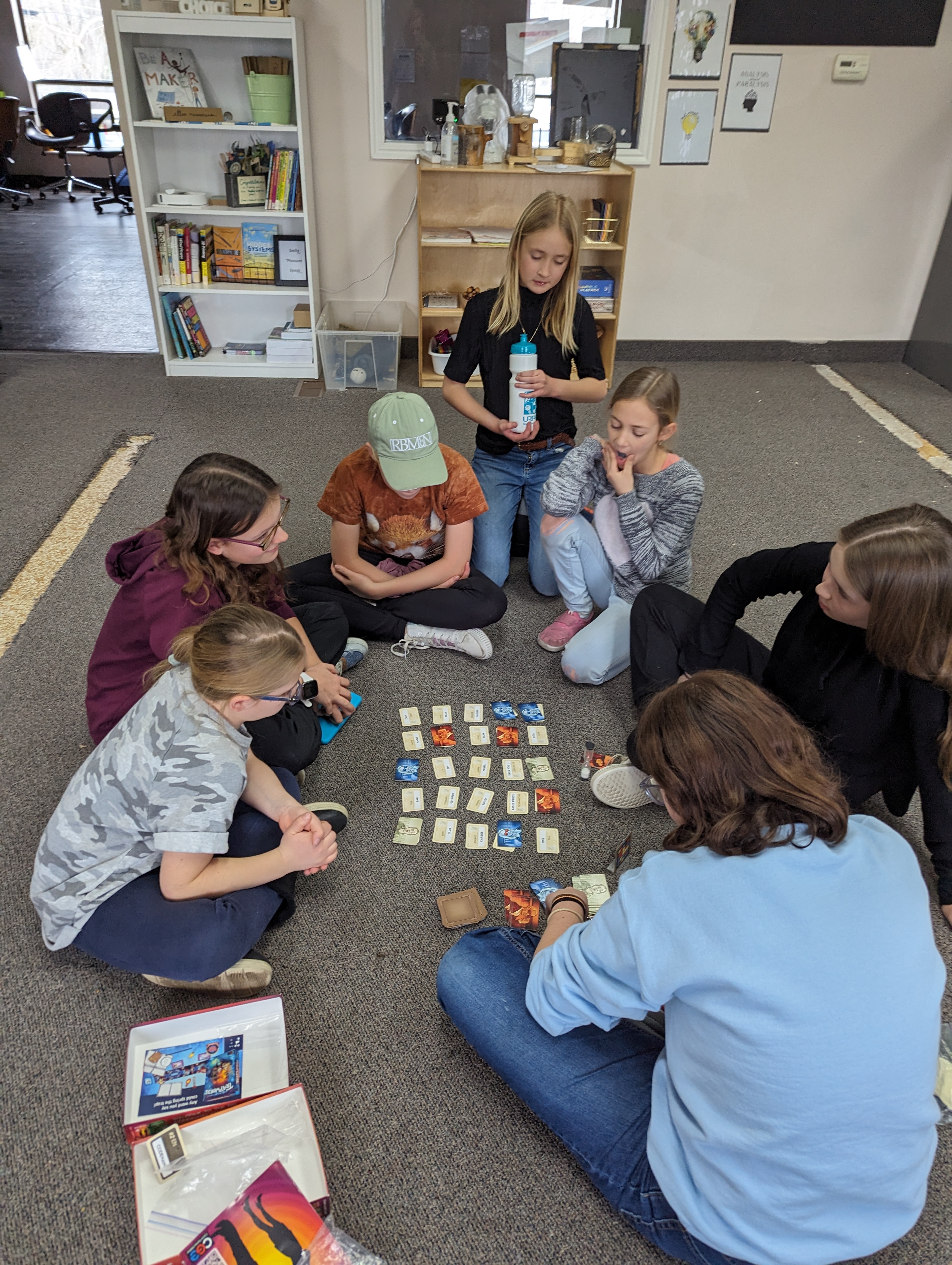
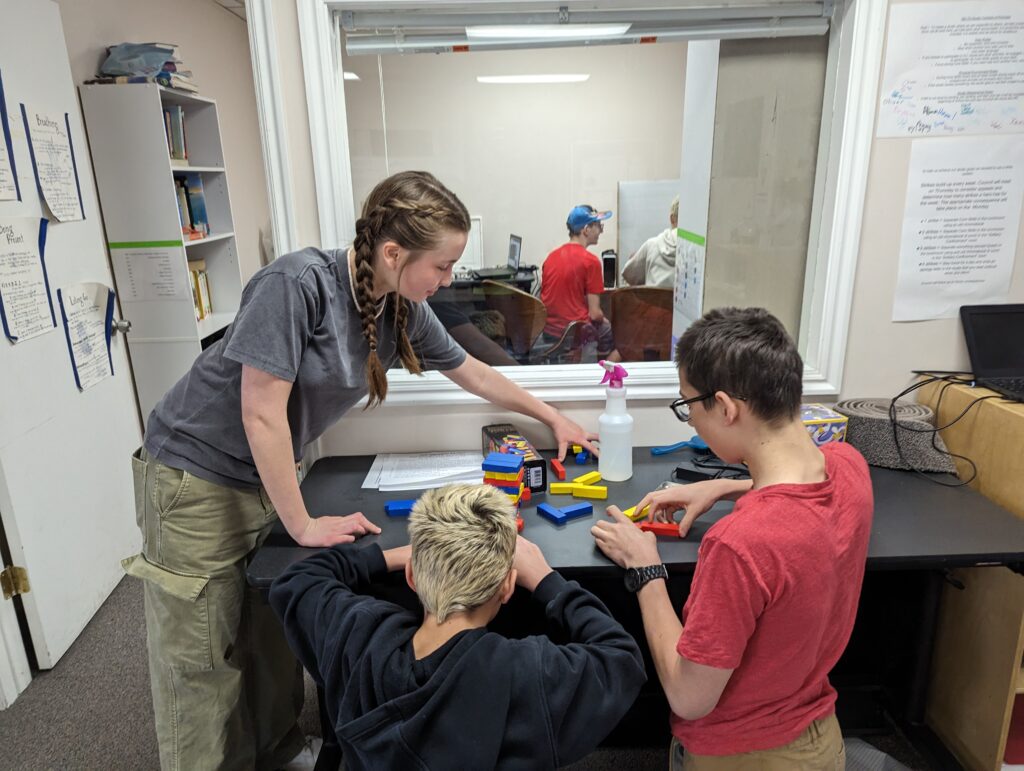
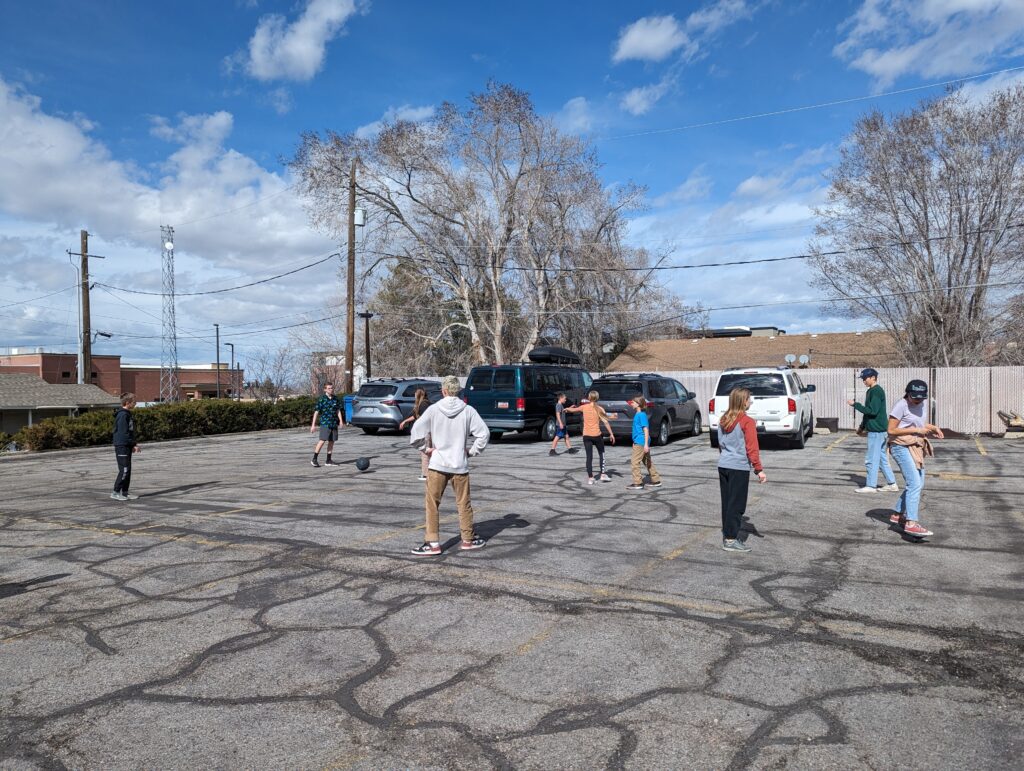
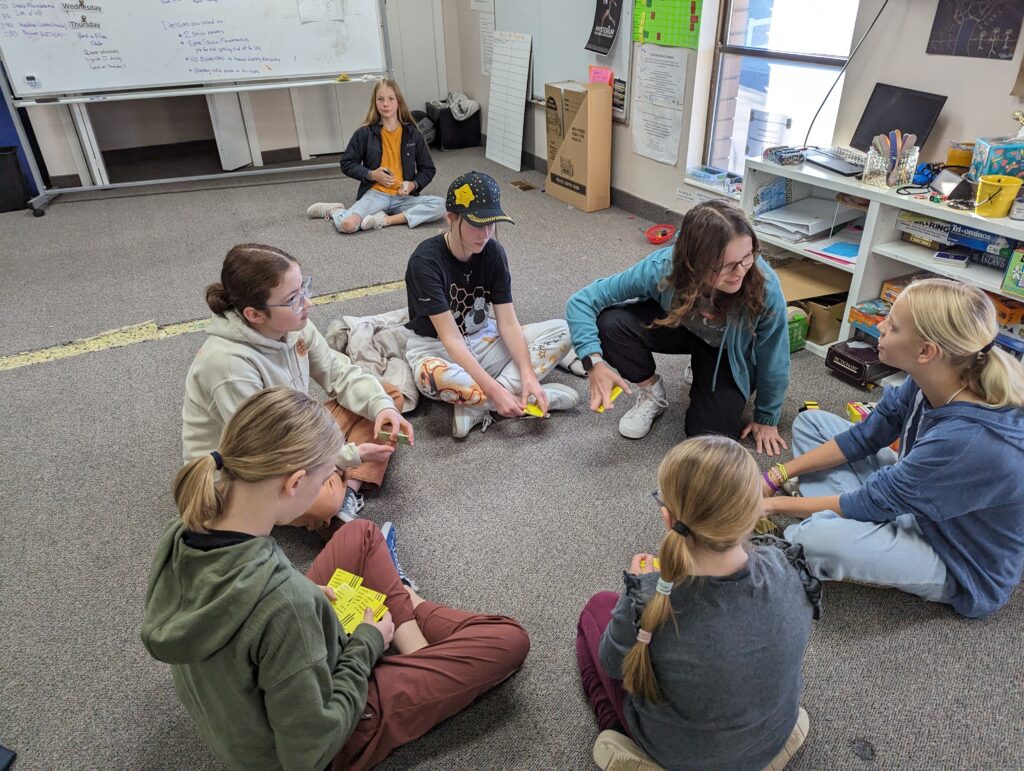
I mention this frequently, but the daily huddles are one of the most beautiful examples of CHOICE relationships. I wish you could all hear this tribe of 11-14 year olds directly giving and receiving warm and cool feedback. Their humility and maturity in doing so is astounding. I don’t have any research to confirm this, but I believe that the laughter and bonds that are created through tribe building challenges and games help create the environment where heroes feel more comfortable and safe to give one another feedback.
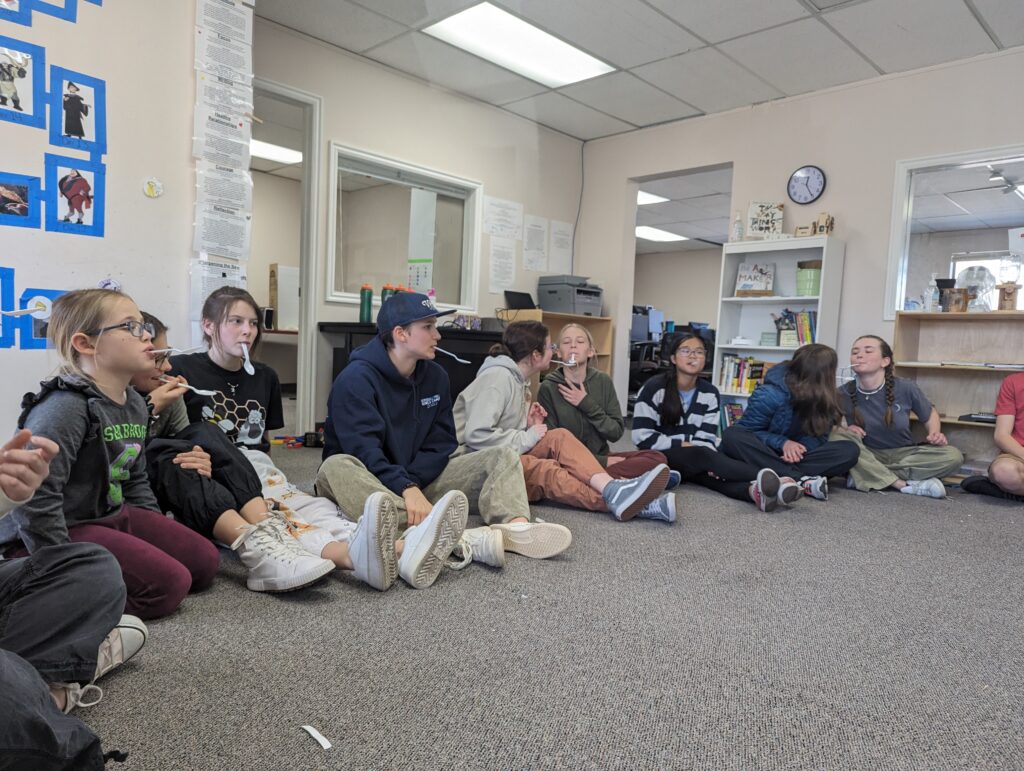
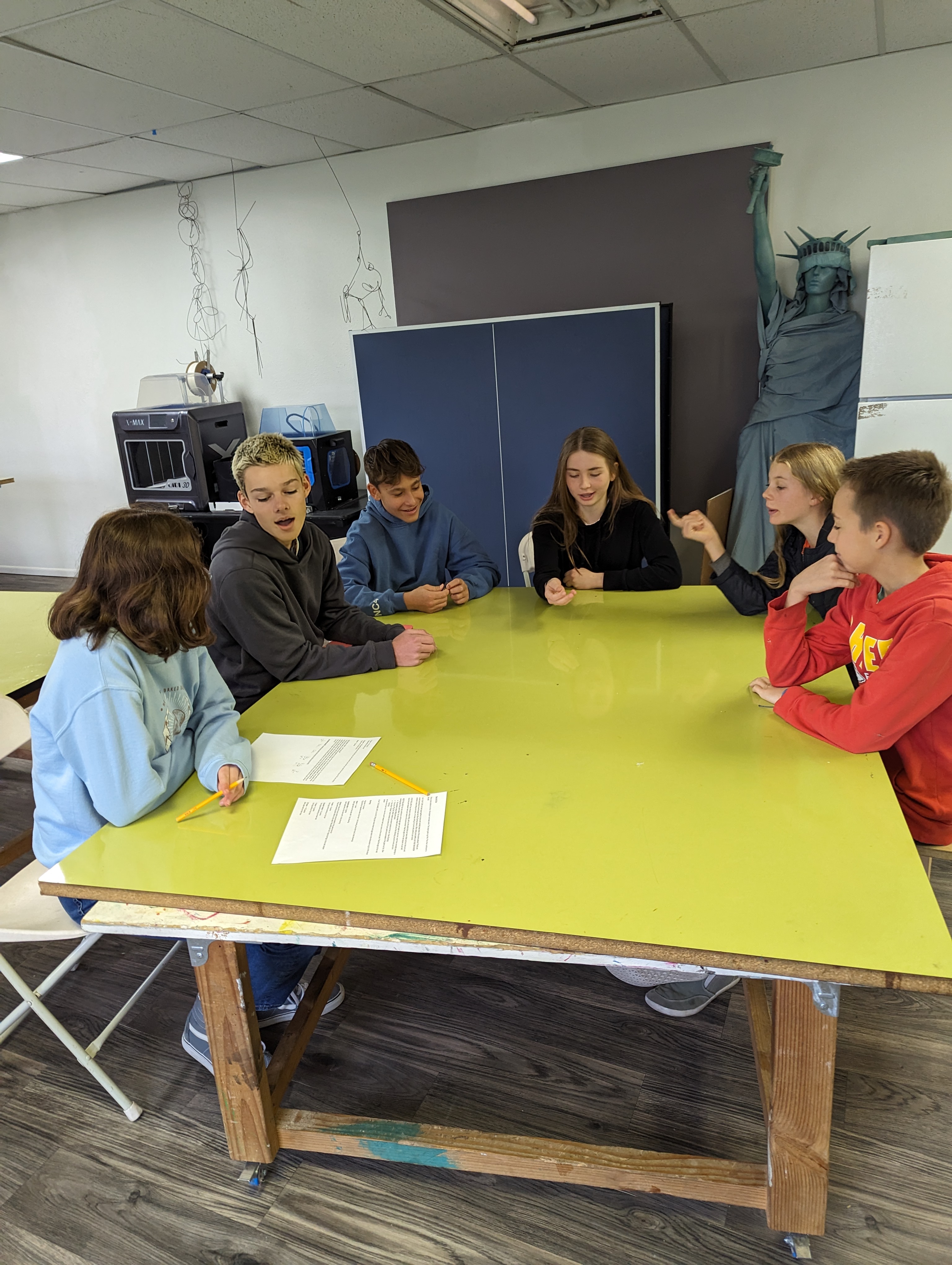
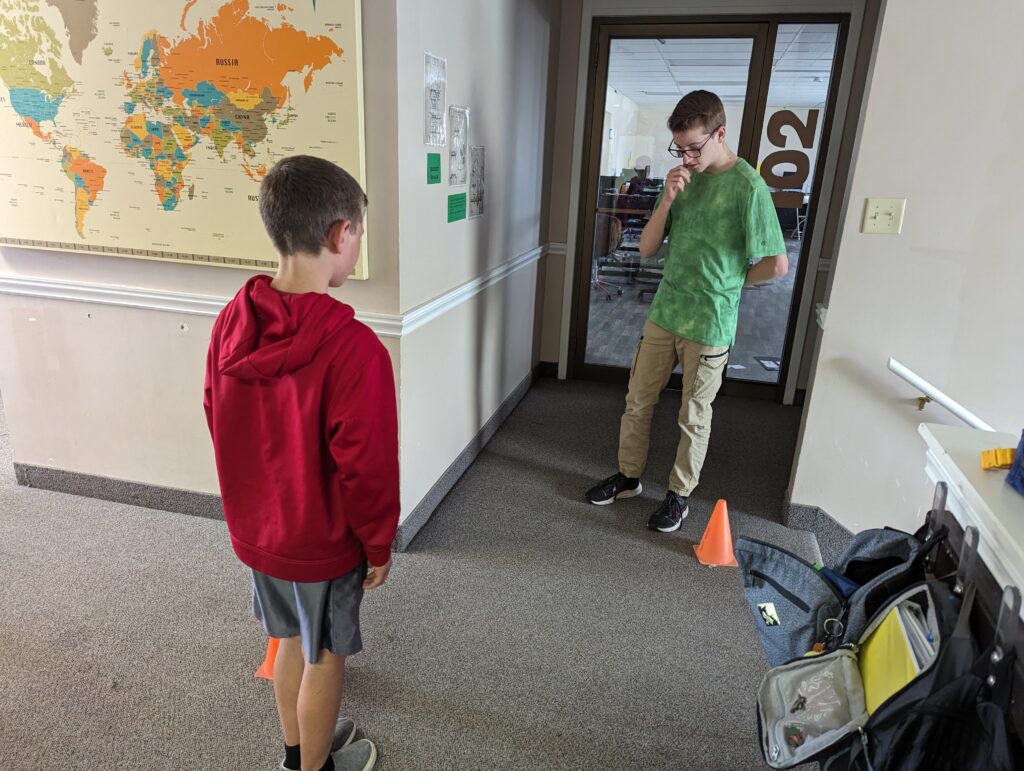
Discussions have provided an opportunity for growth all year. Defining respect in a discussion, and how to hold one another accountable to that definition have been an ongoing debate. Disagreeing, frustration at not being able to control others, and problem solving are part of CHOICE relationships. There was a significant shift this week however during Quest discussions, as the DS heroes incorporated some of their new decisions into their discussions and abided by their Rules of Engagement. One launch lasted 20 minutes as a circle, but 3-4 Heroes continued the topic for another 5-10 minutes after. It was impressive to watch them all listen to different opinions and disagree respectfully. Let’s just say we have more to discuss concerning technology tied with creativity for our future – is it safe for our future? Who programs the moral decisions (in a smart car for example dodging an accident at the expense of your life versus other’s lives)? Does technology create laziness or irresponsibility? These are just a few questions asked and debated.
During quest we also had a Launch discussing Analysis without Paralysis – we were in week 2 and no building was happening yet. The brainstorming boards were all filled out days earlier, so it was time to move forward and just start prototyping.
Everyone has been so helpful with giving feedback on Build ideas, it has been a continuous process of warm and cool feedback the last 2 weeks.
There is quite a lot of sitting involved in brainstorming, researching for builds, and watching Mark Rober instruct, so a challenge is to stop every 30 minutes to move the body for a few minutes. A wild, energetic variety of movement is going on which is keeping them sharp and productive…and awake!
Watching them look around and invite other heroes to join in their exercises – intentionally including others – is a beautiful example of CHOICE relationships.
The building finally began the last day of this Week 2 – the DELTAs have had to research supplies and the costs to stay on budget. They had to submit lists with links and in-depth descriptions of what they needed. Many had to go back and resubmit to include more detail – what good practice to learn simplified brainstorming, prototype researching!
The Harvard Study of Adult Development is the “longest in-depth study of physical and mental well-being among adults”. It “began in 1938 with 724 participants: 268 Harvard College sophomores and 456 young adults from Boston. It now includes 1,300 descendants of its original participants.” (Relationships make us happy — and healthy — Harvard Gazette) It’s findings: Meaningful relationships are the most critical factor to keeping us happy and healthy throughout our lives. My dad shared this study with me all throughout my life and the older I get, the more my life experiences concur with the research. As I watch our heroes, I recognize that they are exploring and practicing the skills of creating and maintaining meaningful relationships every day. The culture and freedom of CHOICE breeds those opportunities. I am perpetually grateful my daughter asked me to start a school 5 years ago. It has led to the development of so much beauty and opportunity. And if research is correct, perhaps the most critical thing our children are taking away each day are the skills, mindsets and opportunities to practice CHOICE relationships.
